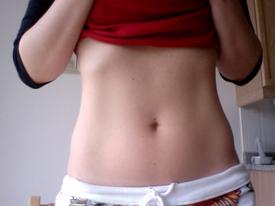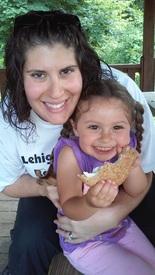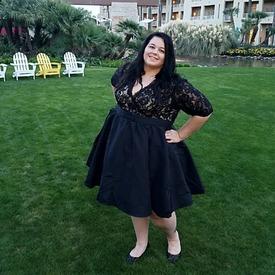this whole breakfast theory...

fitbot
Posts: 406 Member
i know that brekkies is REALLY IMPORTANT. I have read the articles, done the research. However I find that I burn whatever I eat at lighting speeds in the morning: wether I eat a fruit or a lumberjack breakfast, i am STARVING by 11 am. So to minimize calories I opt out for only having a piece of fruit or a yogurt in the morning and then having a more complete lunch... thru out my weight history I have always been the fittest & thinnest when I don't have a big breakfast... Maybe mediterraneans are onto something...
0
Replies
-
I have always been the same way and it doesn't matter how much protein, fiber, or even sodium. I don't get it, but oh well.0
-
fast burning metabolism in the A.M.?
 0
0 -
they say you should mix complex carbs and lean protein at every meal. ESPECIALLY breakfast. Maybe give that a try? And also, eating little and often could be a great help
 A small meal every 3 hours can go a long, long way for your metabolism
A small meal every 3 hours can go a long, long way for your metabolism  hope this helps! 0
hope this helps! 0 -
Honestly I have tried it all. I have tried eating slow cooked grains with protein in the a.m., or eggs, or toast, or a sandwich, etc.
it doesnt make a difference what I eat or how much or how little, im STARVING by 11. To save some calories I just have a bit of yogurt or a fruit instead. 0
0 -
You should probably be eating every 3 hours anyway, so smaller portions 6 times a day is the way to go. Not sure when you wake up though...I don't wake up until 2pm, so that's "my morning." lol0
-
I'm the same way. I can never make it from breakfast to lunch without wanting to chew my hand off, so I started to eat a morning snack at about 10:30.0
-
I get what you're saying about Mediterraneans! I work with a lot of people from Greece, Lebanon, Syria etc.. My friend was saying oh they must not eat, but I told her they do eat! Huge lunches every day. And then that's about it! lol. I personally do the same.0
-
I have 2 mini breakfast during the week. If I only eat breakfast at home it is too early and I am hungry way before my lunch time. So I have a very small partial breakfast at home and a second at my desk when I get to work. Sometime I do still get a little hungry before noon, but not as often. I think it has really helped!0
-
I find small meals throughout work best for me. I generally eat about 300 cals at each meal and then add 100-200 cal snack in between them and before bed. I don't like feeling hungry and it works for me.
If you're goiing with a light breakfast (calorie-wise) I would really recommend oatmeal or a whole grain cereal instead of a peice of fruit or yogurt. Those things are good for you but not at all balanced. A small bowl of oatmeal with some berries thrown in and a glass of skim milk on the side are really only going to cost you 200-250 calories and you're getting a very balanced meal.0 -
I used to not eat breakfast in the morning and actually ended up forcing myself to eat breakfast. I had the same problem. I committed to eating breakfast and tried alot of different things. One thing I did was prepare my breakfast ahead of time and pack it up and take it to work with me. I eat what I prepared as it comes to me. I have trouble getting all of calories in so I HAVE to have breakfast. I am on low carb diet so I cook bacon while I shower and prepare a protein shake and throw in a crustless quiche muffin or two that I prepare over the weekend. I end up grazing my breakfast and eating it a little at a time. By the time lunch comes around I am not starving and can make better choices.I also keep little snacks in the fridge at work so I can pop a good snack if my tummy starts talking to me. Saved me from gnawing off a limb on many occassions. I think I am doing better since I started eating breakfast. Find a way that works for you. The science is there. Make it yours!
 0
0 -
To me the solution would be to have a small snack about 11 if you get hungry at that time. I always eat breakfast, eggs, cereal, or oats. I too start getting hungry about 11 sometimes I have a snack sometimes I don't. I have a BIG lunch at about 12:30 which is my main meal of the day. So if I can hold out til then I do. If not a snack it is, usually fruit.0
-
I have a regular breakfast around 6, but then at 8, I have a snack. I eat every 2-3 regardless.0
-
Honestly I have tried it all. I have tried eating slow cooked grains with protein in the a.m., or eggs, or toast, or a sandwich, etc.
it doesnt make a difference what I eat or how much or how little, im STARVING by 11. To save some calories I just have a bit of yogurt or a fruit instead.
I've always been the same way, so I've taken to eating a breakfast of like oatmeal or cereal (something low cal) and then eating some fruit later in the day, say about 2-3 hours later, then eating my lunch. It seems to help me to not starve to death without over eating.0 -
You don't say what time you eat breakfast, but even if you are eating it at 11am, eating again at 11 am is a good thing. It is so much better for your body to eat smaller more frequent meals. Even so, if eating a yogurt for breakfast is all you want, nothing wrong with that either, but would certainly sustain my body by eating again at 11 if "I was starving", as your body is telling you something. I think the whole breakfast premise is to put something in your body to fuel it and kick start your metabolism after being without food while you are asleep. Each person is different so what works for one is not for 100% of everyone else. Sounds like you have found what works for you, but certainly allow yourself to eat at 11 if it has been 3 hours since you had breakfast.0
-
I do the Hobbit breakfast. Samwise had it right when he went for "Second Breakfast". I even have it listed that way on my food diary. If I eat a carb something before exercising, then I need to eat a protein something after.
D0 -
Here's a link to a good article about 10 weight-loss myths: http://today.msnbc.msn.com/id/13897378/
They mention breakfast in there and also talk about 3 meals versus 6 meals per day. I read some replies regarding that in this thread.
I think MyFitnessPal is all about common sense weight loss and weight loss by the numbers. I've had good luck following recommendations just like this article has.
Here is the full text of the article.......
On “Take It Off Today,” we look at diet tips and find out which ones are fact and which ones are fiction. Many people have their own opinions when it comes to watching calories and shedding pounds. Madelyn Fernstrom, a “Today” contributor and director of the weight management center at the University of Pittsburgh Medical Center, was invited on the show to discuss the most common diet myths — and to deliver the facts about healthy ways to reduce calories.
We’re a nation obsessed with diets and dieting. Every day we’re bombarded by seemingly new, and most often confusing, information on what is the best way to shed those extra pounds. There are fat-burning pills, exercise machines, low-fat-low-carb snacks, and diet tips galore: Don’t eat carbs, stay away from desserts, don’t skip breakfast, never nibble after 6 p.m., etc. New diet book are always hitting the bookstore shelves with the latest weight-loss advice, and celebrities feel compelled to share their diet successes. With all this conflicting information, it’s difficult to find a diet that is right for you — and that will work for you!
And it’s not that all this weight-loss advice is useless or even unhealthy. It’s just that one person’s diet secret may not work for you. The same doesn’t work for everyone. So it’s important to know the truth behind common diet tips. Here are 10 popular weight-loss myths and the facts.
Myth #1: You don’t have to count calories
Fact: Counting calories is important
You definitely need to count calories in order to lose weight. People tend to overestimate their physical activity and underestimate their calories. Don’t rely on eyeballing your caloric intake or trying to estimate it. Instead, every day write down what you eat, the corresponding calories, and your physical activity. To make it easier for you to quantify your physical activity, wear a pedometer. Do this every day. Don’t do it just once or twice a week. Consistency is important for dieting. Sure, this isn’t easy. But if you want to lose weight, this is important to do on a daily basis.
And remember that a calorie is a calorie whether it’s fat, sugar, or protein. Still, some foods are more calorie-dense than others. That means that they contain more calories per ounce. Carbohydrates and protein have the same calories per ounce. Fat, on the other hand, has twice as many, so the calories found in fat add up twice as fast. Eat fatty foods — dairy products, skin on meat, fatty meats — in moderation. You want to limit your intake of fat, but you don’t want to stop eating fat. Fat increases your sense of fullness. Your body also needs a small amount of fat to function. Fat is part of our cell structure. The body can’t make some essential fatty acids on its own, so it needs to obtain them from an outside source.
Myth #2: Always eat breakfast
Fact: Eat some time during the morning
If you wake up at 7 a.m., you don’t have to immediately eat a big breakfast. You’re probably not even hungry right after you wake up. You don’t have to jump start your metabolism. You simply have to structure your eating throughout the day, so you’re not too hungry later on. It's best to eat within three hours of waking. If you get up at 7 a.m., eat something by 10 a.m. Have some yogurt or a piece of fruit. If you don’t eat in the morning, you will be too hungry when you finally have a meal, and then you’ll likely overeat. Remember, what counts is your total daily calories.
Myth #3: Eat three times a day — don't snack
Fact: Eat when you want to maintain calorie intake
Once again, it’s all about calories. You can eat three times a day or six times a day, as long as you have the same caloric intake. However, you should have at least three meals a day. That structures your daily eating, so don’t become too hungry. And if you eat six times a day, you won’t be having six full meals.
Myth #4: Carbohydrates make you fat
Fact: Carbs are necessary for a balanced diet
Carbohydrates do not make you fat. Calories make you fat. Often it’s the sugar and fat contained in carbohydrates that make you fat. Also a lot of carbohydrates are processed, so you don’t get the advantage of feeling full from fiber found in unprocessed carbs. For example, whole grain pasta is more filling — and makes you feel satisfied longer — than white pasta, though both have the same amount of calories. What will change the number of calories is the amount of sauce and butter you put on your pasta. What you want to do is eat carbs in moderation.
Myth #5: Avoid fats
Fact: Fats increase your sense of fullness
Fat is twice as fattening as carbohydrates and protein, but you don’t want to avoid them. Studies show that fat gives you a sense of fullness and adds flavor to many foods. Eliminating fat from your diet will increase your hunger. Fat keeps you fuller longer, because it prevents your stomach from emptying out too quickly.
Myth #6: Cut out desserts
Fact: Don’t deprive yourself sweets
Deprivation is the downfall of all diets. You can have a small portion of dessert to satisfy your sweet tooth and still stick to your diet. You just don’t want to eat a large portion, or more! Food is pleasurable for many people. So, treat yourself but don’t overindulge. You can create a diet that lets you eat a sweet once a day or once a week. Dieters who deprive themselves tend to go overboard when they have candy, cake, or cookies. So make a good choice of what you include in your diet. Maybe you can have a small dessert after dinner or lunch.
Myth #7: Don’t worry about dieting — just exercise
Fact: Exercising alone is not enough
You probably won’t be able to work out enough to make up for eating a huge meal. Exercise just does not burn enough calories. If you eata slice of apple pie a la mode that is 500 calories, you’ll have to walk briskly for two hours to burn those calories. So, you won’t lose weight unless you also cut calories.
Myth #8: Don’t weigh yourself
Fact: Get on that scale!
You really need to weigh yourself to keep your weight in check. Sure, you can notice if your belt is getting tighter — or looser — but chances are you don’t have an accurate assessment of your weight. Weigh yourself at least once a week. If you don’t have a scale at home, go to your doctor or health club and weigh yourself.Weighing yourself shouldn’t be seen as punishment. It’s just a way to keep an eye on your weight. And your scale doesn’t always have to tell you bad news. You may not have noticed that you lost two pounds the other week.
You can weigh yourself once a day or once a week. But don’t weigh yourself more than once a day. (That means you’re obsessing about your weight.) Get on the scale the same time every day, so you have some consistency. You can record how much you weigh, but it’s not necessary; you probably won’t forget the number.
Myth #9 Never eat at night
Fact: Calories don’t know time
What’s important is how many calories you consume; not when you eat them. Many successful dieters save 200 to 300 calories to eat at night. Sure, eating a big steak before you go to bed may give you some indigestion, but it won’t ruin your diet. Eating at night may be the best time for you. You’re at home, the kids are in bed, and you have time to enjoy your food. Oprah says she doesn’t eat after dinner, but that doesn’t mean that you can’t have a late snack and still stick to your diet.
Myth #10 No snacking between meals
Fact: Calories are calories
Snacks aren’t the culprit; calories are. You can have a small container of yogurt for breakfast and a piece of fruit for a snack before lunch. Some dieters prefer to have more structure and limit themselves to three meals a the day and no in-between-meal snacks. Others are more comfortable having small, low-calorie snacks between their main meals. What counts is the total number of calories.
Dieter’s tip: Reduce calories
The best way to think of cutting calories is to go backwards. Add up your daily calories. If you eat 500 fewer calories a day, you can expect to lose a pound a week, which is considered to be fairly fast weight loss. If you cut out 250 calories a day, you will lose two pounds a month. Of course, this depends on your body type, age, health, gender, and level of physical activity. Men typically need to eat from 1,600 to 1,800 calories to lose weight; women need 1,400 to 1,600. If you want to lose weight at a faster — or slower — rate, you can adjust your calories.0 -
If I'm not mistaken, breakfast is the most important meal for brain function, not necessarily for weight loss. I'm not saying that it *isn't* important for weight loss (I don't know if it is or not), but the reason that it's touted for importance is because you are "breaking" your "fast" from going the entire night without eating. Your brain needs nutrients to get it jumpstarted and not letting it be tired and grouchy. ;n)
HTH!0 -
I have the same problem!
Here is my solution:
Spread your breakfast food out over a 2-3 hour period. For instance:
I used to eat everything at one sitting and by 10 or 11 a.m. I would be starving. I read an article that said this means you have a fast metabolism and that by eating almost constantly works better to sustain your metabolism and it was suggested to break your meals up as opposed to eating everything at one sitting. So here is what I do...
After exercise, I eat one small piece of fruit. Then about an hour later, I have 1/2 cup cottage cheese or yogurt and strawberries and sprinkle this with a tsp. of flax seed or a tablespoon of chopped nuts.. Then I pack up several foods and take them to work and much on these between 8 a.m and noon. I usually pack some low fat cheese, some celery, grapes, and a handfull (about 7 or 8) of whole grain crackers. I jst munch on these food throughout the morning along with plenty of water. I have not had the hunger problem since I started doing this and I have taken off that extra 5 lbs that was soooo stubborn in leaving.
Hope this helps. Good luck to you!
:drinker:0 -
I scanned the posts, but I believe studies have shown people who eat breakfast tend to consume less calories throughout the day, especially if you eat eggs.
Personally i eat 3 eggs and 1 piece of toast in the morning (around 5:45) then around 10am I eat a whole wheat bagel with peanut butter. That gets me through until lunch.0 -
I'm in the same boat. I'll have breakfast at 6:30 (usually cereal), snack at 10 (apple and a handful of almonds) and then lunch by 11:30. By this time I level off and I usually make it home with plenty of room for dinner.
For some reason I eat half my calories in the first 5 hours. It's working for me though so I can't complain.
Good luck!0 -
I get up at 5:30 am. I put one scoop of chocolate protien powder in my coffee every morning. It's like a mocha, plus I get some protien. Win Win. And I don't feel like I'm eating-cause I hate eating breakfast, but I'm getting my protien in.
I always have a snack around 9:30 or 10. Usually nuts, or a fruit and cheese. (carb/protien) and a good sized lunch at 11:30 or 12.
Another snack at 3 or so
Dinner at 6
Maybe an after dinner snack/maybe not.0 -
You should probably be eating every 3 hours anyway, so smaller portions 6 times a day is the way to go. Not sure when you wake up though...I don't wake up until 2pm, so that's "my morning." lol
How often do you eat after meal 1?? You should consider eating small balanced meals every 2.5 to 3 hours... Your hunger shows how high your metabolism is, and if you would feed your bod a good balanced diet (about 250cals per meal) every 3 hours, you'd probably even fitter and leaner than what you are now!0 -
I had the same problem. I would eat breakfast (1 egg and a slice of bread) @ 8am. Right around 11-11:30 I'm starving and lunch isn't until 12 or 1pm. So I started eating a snack between breakfast and lunch...usually a piece of fruit. I'm seeing a dietician and she recommended that that I add another egg or add some canadian bacon or turkey sausage to my breakfast. That has worked out well for me. She feels that after breakfast you should easily be able to wait 4-5 hours before eating again. However everyone is different and what works for me might not work for everyone else so manage it the way you know how.0
-
if i ate 3 eggs for breakfast i would be a fridge.0
-
I eat breakfast usually a few hours after I'm awake anyways. I'm with the big lunch thing too, I feel better if I eat a big lunch, and I don't feel like I'm starving for dinner.0
-
I do a small breakfast and then a small morning snack within 2 hours. It works for me.0
-
I'm all for 2nd breakfast! I eat a deli flat with protein (usually chicken or turkey) around 7:30 a.m., then cereal, yogurt & fruit when I get to the office (9-9:30). I always make sure to drink at least a liter of water by the end of 2nd breakfast.
Definitely don't deprive yourself in the morning, snacking on healthy things is good.
Cheers!
Maria0 -
I probably need to eat a little more protein than you do. I am supposed to eat 2-3 whole eggs and 2 egg whites.if i ate 3 eggs for breakfast i would be a fridge.0
This discussion has been closed.
Categories
- All Categories
- 1.4M Health, Wellness and Goals
- 398.4K Introduce Yourself
- 44.7K Getting Started
- 261K Health and Weight Loss
- 176.4K Food and Nutrition
- 47.7K Recipes
- 233K Fitness and Exercise
- 462 Sleep, Mindfulness and Overall Wellness
- 6.5K Goal: Maintaining Weight
- 8.7K Goal: Gaining Weight and Body Building
- 153.5K Motivation and Support
- 8.4K Challenges
- 1.4K Debate Club
- 96.5K Chit-Chat
- 2.6K Fun and Games
- 4.8K MyFitnessPal Information
- 17 News and Announcements
- 21 MyFitnessPal Academy
- 1.5K Feature Suggestions and Ideas
- 3.2K MyFitnessPal Tech Support Questions
















